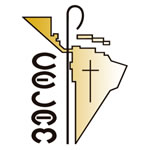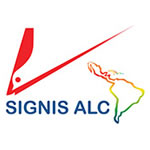Identity
Project n. 50/2014: "Articulation of Educommunication in the integral and solidarity development of Latin American and Caribbean children and adolescents", was financed with the money granted by the Italian Episcopal Conference (CEI), through its Committee "Service for interventions charities in favor of Third World Countries ".
Who are the strategic partners
The Latin American Episcopal Council (CELAM) is an organism of communion, reflection, collaboration and service as a sign and instrument of collegial affection in perfect communion with the universal church and with its visible head, the Roman Pontiff. And, that as a service organization, CELAM is above all animation and helps the reflection and pastoral action of the Church in Latin America and the Caribbean.
The Latin American and Caribbean Catholic Association of Communication (Signis ALC) is a network of institutions and communication professionals from Latin America and the Caribbean, which promotes solidarity communication based on human and Christian values, and whose purpose is to contribute to the training and organization of these communicators, so that they have a greater incidence in society and in local Churches.
The Institute of the Daughters of Mary Help of Christians (FMA) Religious Congregation founded by Saint John Bosco and Saint Mary Mazzarello, present in the five continents with a specific mission rooted in the Gospel: the education of the new generations, at all stages of the evolutionary age. Faced with cultural change and new technological scenarios, the FMA communities, in solidarity with those who seek the meaning of life, peace, and respect for their own dignity, promote the integral development of the person to collaborate in the construction of a more human world, according to God's plan.
Where are we going
In the experience of this project, we seek to articulate the processes, areas of intervention and transversal axes of Educommunication in the integral and solidary development of children and adolescents in Latin America and the Caribbean, with emphasis on the leadership of the community, open to dialogue critical and constructive with the new sociocultural scenarios, generating dynamic and democratic communicative ecosystems at the service of the common good, which form and transform emerging social imaginary.
With what methodology
From the same point of view of educommunication, we propose to make experience from the collaborative and participatory methodology of this new methodological field, as a dynamic and circular elaboration process, with the active participation of theorists, researchers, producers of experiences.
With emphasis on disciplinary transversality and interdisciplinarity. From talks, knowledge exchange seminars and production. The fields of work include the media (considering the originality of each medium), expression and art, experiences of participatory citizenship, in the educational-pastoral field.
Also assuming the methodology of seeing, judging, acting for rereading and proposals in each sector, in addition to metacognitive evaluation proposals with indicators common to all experiences.








